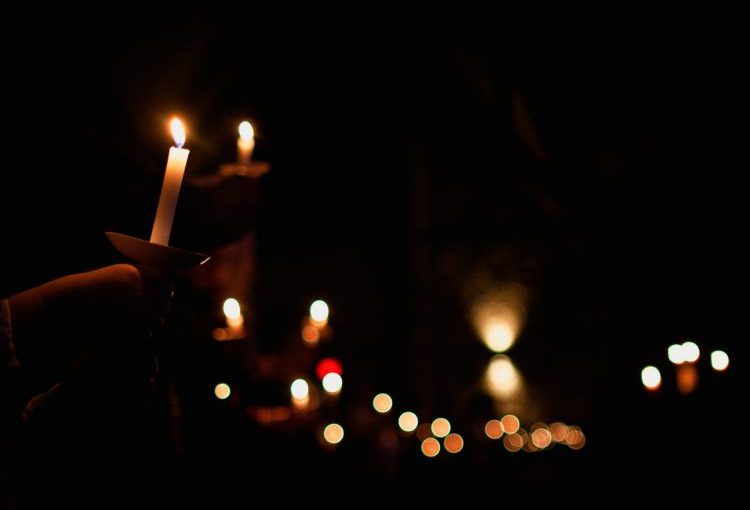- 27 Nov, 2023
- 0
- Laurie Gagne
- Laurie Gagne
Reflections on a Prayer Service for Gaza
Reflections on a Prayer Service for Gaza
by Laurie Gagne
658 words
Washington DC is a city designed to evoke emotions.
Coming up from the Metro into the Main Hall of Union Station, on my way to a prayer service for the people of Gaza, I paused to look at the Roman legionnaire statues standing guard over the crowds who entered and exited the great neo-Classical building. Appropriate statuary, I thought, for an imperial city—Rome 2000 years ago, Washington today.
Uniform in face and figure (the same young man was used as a model for all 46 of the statues) they evoke power and obeisance to power—which the Empire demands. I am supposed to feel secure, I thought, guarded by these monumental sculptures, but I don’t.
Instead, they make me uneasy. I am on a soulful mission and my soul feels out of place in this mammoth structure based on ancient Roman baths and the Arch of Constantine.
Crossing Columbus Circle headed for the Senate Hart Building, I remember the first time I visited D.C. It was 55 years ago, in 1968. I was 16 years old on an “American Heritage” tour.
A real patriot (as a child I used to recite Patrick Henry’s address to the Virginia House of Burgesses from the roof of our garage) I was expecting to be inspired by our nation’s capital. But as we toured the monuments, I was distinctly underwhelmed.
Listening to debates on the floor of the Senate, I was impressed by the civility of partisans on both sides (this was more than half a century ago!) but as I lingered in the gallery after everyone had left, I had the sense that something was missing. This was the greatest country in the world and I was at its very center, and yet, something was missing.
It was the summer of the Poor People’s March on Washington and there were tents forming a huge encampment called “Resurrection City” all along the Mall. Martin Luther King, Jr. was assassinated that spring but I saw Ralph Abernathy with a bullhorn exhorting his followers on the steps of the Capitol.
The spirit of King was alive in this group and if I had gotten closer to it, I might have found what I didn’t find in the halls of Congress—something to ignite my own spirit. As it was, my friends and I were more concerned by the city-wide curfew that kept us in our hotel at night than we were with the marchers’ demands.
Today I am joining a group of Christians in the main lobby of the Hart Building. Warm smiles greet me as the circle widens to include me and one other latecomer. In contrast, the Capitol Police surrounding us are as impassive as the Union Station legionnaires!
At the Kiss of Peace (ancient Christian greeting of goodwill), one of them rebuffs the outstretched hand of the leader of our group who has left the prayer circle to engage with them. Do we look like a cult, I wonder. Does the Christian message of peace—we are calling for a ceasefire—seem alien or even subversive in these corridors of power?
When the police issue their warning to leave and five members of our group lie down to be arrested, I am seized by the desire to join them. That’s where I belong!
But I haven’t planned for it; the grandchildren are waiting, along with other commitments. So I leave the building with the majority of the group and conclude the prayer service outside, where the only attention we get from passersby is negative: a man angrily honking his horn at us, a woman shouting “Crazy” as she refuses to give us an inch on the sidewalk.
But walking back to the Metro, “my soul is rested,” to quote King quoting one of the grandmothers who walked to work during the bus boycott in Montgomery. It feels good to be an alien in my own country, if it means witnessing for peace.
—————————-end—————————-
Laurie Gagne has a Ph.D. in Theology and taught Religious Studies and Peace and Justice on the college level for 40 years.
© 2023 PeaceVoice

laurie-gagne